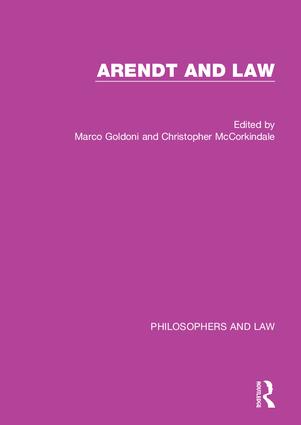
The essays selected for this volume demonstrate the importance of law - conceptually, normatively and practically - to a proper understanding of Hannah Arendt’s work. Though Arendt herself was not a lawyer, and lacked any legal training, it is remarkable that in each of her guises law plays an often subtle, at times idiosyncratic, but unavoidably vital role. For example, as a journalist, confronting the evil of Adolf Eichmann; or as an essayist, engaged with emerging democracies in the East or their unravelling in the West; or as a political thinker concerned to celebrate and secure the conditions for political action; or as a philosopher, reflecting on man’s capacity for judgement. Although Arendt herself never wrote systematically about law her rich insights in this field have been studied closely by scholars and this collection marks the first attempt to gather that work, and to understand it thematically. In so doing, the editors seek to open a dual dialogue: inviting Arendt scholars to uncover what Arendt had to say about law, and legal scholars to evaluate her contribution to the field of law.